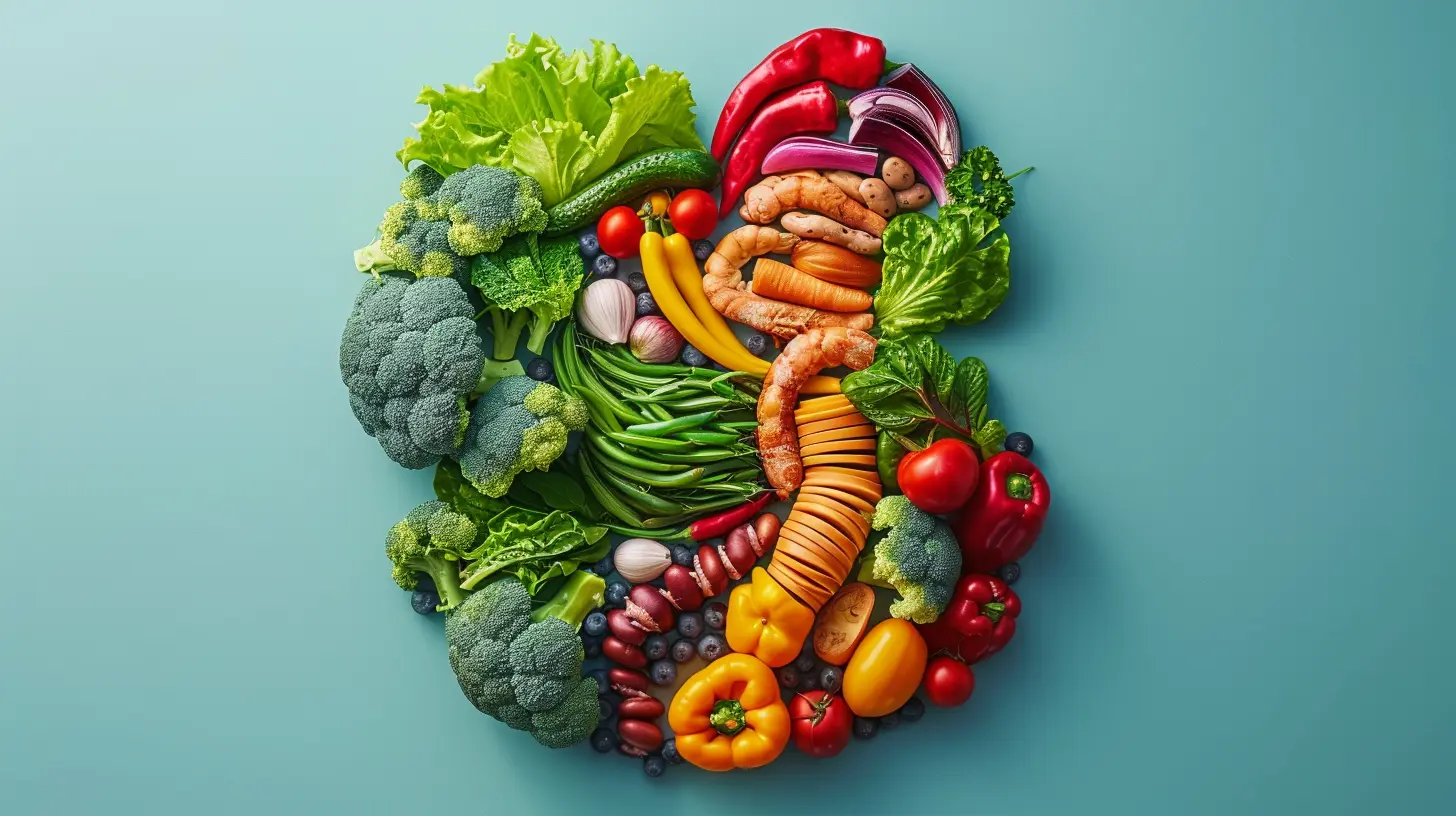The Connection Between Gut Health and Aging
15 May 2025
Getting older is inevitable. But how we age? That’s a whole different ballgame. While genetics do play a role, science is revealing something fascinating—your gut health might be pulling more strings than you think. Yep, the trillions of microbes hanging out in your digestive tract could be major players in how well (or not-so-well) you age.
In this article, we’ll dive deep into the gut-aging connection. From boosting your immune system to keeping your brain sharp, your gut has a hand in it all. So if you’ve ever wondered why people are obsessed with probiotics, fermented foods, and “gut-friendly” diets, stick around. This is the down-to-earth, no-jargon guide you’ve been looking for.

What Exactly Is Gut Health?
Before we talk aging, let’s get one thing straight—what do we mean by “gut health”?Your gut, aka your gastrointestinal tract, is home to about 100 trillion microorganisms. This includes bacteria, viruses, fungi, and other tiny creatures. But don’t freak out—they’re not all bad. In fact, many of them are essential to your health. Together, these microbes form your gut microbiome.
A balanced gut microbiome helps with:
- Digestion and nutrient absorption
- Immune system regulation
- Hormone production
- Mood and brain health
- Detoxification
When things go haywire in your gut (think poor diet, stress, antibiotics), it can throw your entire body off balance. And as it turns out, this imbalance doesn’t just affect your belly—it may accelerate how quickly you age.

How Your Gut Changes As You Age
Just like your skin forms wrinkles and your joints get creaky with age, your gut microbiome goes through some changes too. Here’s what usually happens:- Loss of microbial diversity – Fewer types of bacteria hang around as you get older. And less diversity usually means less resilience against disease.
- Rise in “bad” bacteria – Inflammation-triggering microbes can outnumber the good ones, especially with a poor diet or high stress.
- Slower digestion – Your gut motility slows down, which can lead to issues like constipation, bloating, or nutrient malabsorption.
These gut-related changes can influence your energy levels, cognitive function, immune response, and even skin appearance.

The Gut-Brain-Aging Triad
Let’s talk brains for a sec.Have you ever had a “gut feeling” about something? That’s not just a figure of speech. The gut and brain are actually connected through a communication superhighway called the gut-brain axis. They’re constantly talking, sending chemical signals back and forth.
Here’s the kicker—an unbalanced gut can lead to increased inflammation and oxidative stress in the brain. And that’s one of the key contributors to cognitive decline and neurodegenerative diseases like Alzheimer’s.
But when your gut is thriving? It helps produce neurotransmitters like serotonin (aka the “happy hormone”), reduces brain fog, and improves focus and memory. So yes, taking care of your tummy might just help you stay sharp well into your golden years.

Gut Health and Immune Function in Aging
Here’s where it gets even more interesting. Nearly 70–80% of your immune cells live in your gut!As we age, the immune system naturally gets a bit sluggish. This process is called "immunosenescence," and it makes you more vulnerable to infections, illnesses, and even cancer.
But a healthy, balanced gut microbiome can stimulate immune cells, reduce chronic inflammation, and keep your body’s defenses strong. Translation? Fewer sick days and a better quality of life as you age.
Weight Gain, Metabolism & Gut Bacteria
Ever notice how it’s easier to gain weight and harder to lose it after a certain age? Some of that is hormonal, sure. But your gut microbes also play a sneaky role.Certain bacteria are better at extracting calories from food. If your gut microbiome is out of whack, you might be harvesting more energy from the same meals compared to someone with a healthier gut.
On top of that, your gut bacteria influence how well your metabolism functions. A diverse and balanced microbiome helps keep your insulin levels steady, your hunger hormones in check, and fat storage minimized.
So those stubborn love handles? Your gut might be partly to blame (or to thank if you’re crushing it).
Your Skin’s Best Friend Might Be in Your Gut
You know that saying, “beauty comes from within”? That’s not just poetic—it’s backed by science.Your gut health directly impacts your skin. An inflamed gut can show up as acne, rosacea, eczema, or just dull, prematurely aging skin. On the flip side, a healthy gut promotes glowing, clear skin.
Why? Because your gut controls how well you absorb nutrients like Vitamin C, E, zinc, and antioxidants—all of which are critical for healthy skin.
Plus, healthy gut bacteria reduce inflammation and oxidative stress, which are the culprits behind those fine lines and wrinkles.
Gut Health and Longevity: Is a Long Life in Your Gut?
Some studies have found that centenarians—people who live beyond 100—have unique, diverse gut microbiomes. That’s not a coincidence.Their guts are often loaded with anti-inflammatory and longevity-supporting bacteria. These microbes help keep the immune system in check, lower the risk of age-related diseases, and preserve organ function.
While genetics and lifestyle definitely play roles, gut health could be a key puzzle piece in the longevity equation.
Signs Your Gut Might Be Aging Faster Than You
Worried your gut isn’t aging as gracefully as you’d like? Here are a few red flags to watch for:- Frequent bloating or gas
- Constipation or diarrhea
- Fatigue, even after a full night’s sleep
- Skin issues (acne, dryness, dullness)
- Brain fog or memory struggles
- Unexplained weight gain
- Mood swings or anxiety
If you're nodding “yes” to more than a few of those, it might be time to show your gut some love.
How to Take Care of Your Gut as You Age
Alright, so what can you actually do to keep your gut (and yourself) youthful? Here’s your gut-health cheat sheet:1. Feed the Good Guys (Prebiotics)
Prebiotics are plant fibers that your good gut bacteria feed on. Think of them as fertilizer for your microbiome.Load up on:
- Garlic
- Onions
- Leeks
- Bananas
- Asparagus
- Oats
- Apples
2. Bring in Reinforcements (Probiotics)
Probiotics are live bacteria that add to your gut’s microbial diversity.Great sources include:
- Yogurt
- Kefir
- Sauerkraut
- Kimchi
- Miso
- Tempeh
- Kombucha
You can also consider a quality probiotic supplement, especially if you’ve recently taken antibiotics.
3. Eat the Rainbow
No, not Skittles. We’re talking fruits and veggies in every color. Each color offers different antioxidants and nutrients your gut—and entire body—will thank you for.4. Ditch the Junk
Ultra-processed foods, artificial sweeteners, and excess sugar are public enemies #1 for your gut. They feed harmful bacteria and mess with your microbial balance.5. Stay Hydrated
Fiber needs water to do its job. So if you’re upping your fiber game but not drinking enough H2O, you’re not helping your gut as much as you think.6. Manage Stress
Remember that gut-brain axis? Chronic stress can mess up your gut big time.Try daily mindfulness, deep breathing, yoga, or even just dancing around your living room. Whatever chills you out, do it regularly.
7. Exercise—But Not Too Much
Physical activity helps with gut motility and increases microbial diversity. But don’t overtrain—too much intense exercise can actually harm your gut.Aim for moderate activity, like brisk walking, swimming, or cycling.
8. Sleep Like It’s Your Job
Poor sleep hurts your gut, and a messed-up gut can mess with your sleep. It’s a vicious cycle.Aim for 7–9 hours of quality sleep every night and try to stick to a routine.
Final Thoughts: Your Gut, Your Future
Here’s the bottom line: taking care of your gut isn’t just about dodging indigestion. It’s about aging better—from your brain and skin to your immune system and mood.We often chase anti-aging serums, supplements, and diet fads without realizing the real magic might be happening in our belly.
So next time you plan your meals or hit the grocery store, think about feeding not just yourself—but the trillions of helpful bacteria that are rooting for your healthy, vibrant future.
Because when your gut is happy, aging gracefully becomes a whole lot easier.
all images in this post were generated using AI tools
Category:
Healthy AgingAuthor:

Holly Ellison
Discussion
rate this article
3 comments
Daisy Brooks
What a fascinating read! It’s amazing how our gut health really plays a crucial role in aging. I never thought about how our digestive system impacts everything from our skin to our energy levels. Time to prioritize those probiotics! Thanks for the insights!
May 31, 2025 at 3:46 AM

Holly Ellison
Thank you for your thoughtful comment! I'm glad you found the insights on gut health and aging valuable. Prioritizing probiotics can indeed make a significant difference!
Jack Franklin
Healthy gut, vibrant life: age gracefully together.
May 23, 2025 at 3:01 AM

Holly Ellison
Thank you! Emphasizing gut health is key to aging gracefully and can significantly enhance overall well-being.
Alexander Cole
This article highlights the crucial link between gut health and aging, emphasizing how maintaining a balanced microbiome can enhance longevity and overall wellness. It's a timely reminder to prioritize our digestive health through diet and lifestyle choices, fostering vitality as we age. Great insights!
May 16, 2025 at 4:28 PM

Holly Ellison
Thank you for your thoughtful comment! I'm glad you found the insights on gut health and aging valuable. Prioritizing our microbiome truly can make a significant difference in our overall well-being.



